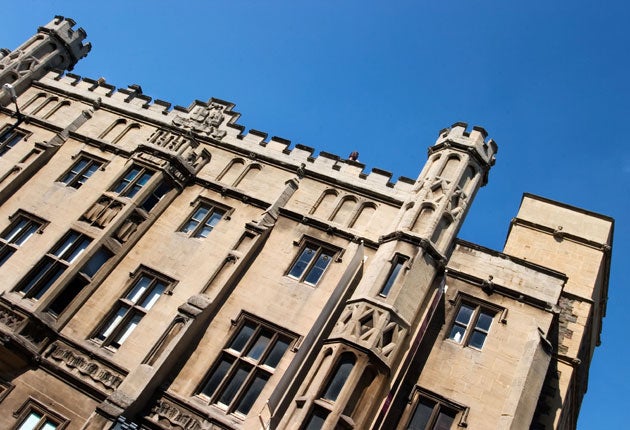A dispute has broken out between the trustees of an award-winning Bristol museum and a fired former director they accuse of the unauthorised disposal of up to 150 exhibits.
The British Empire and Commonwealth Museum was opened by the Princess Royal in 2002 and has been visited by political luminaries, including the US civil rights campaigner, the Rev Jesse Jackson, but closed to the public in 2008 because financial difficulties.
In February, the trustees dismissed the director, Dr Gareth Griffiths, accusing him of abusing his position and allowing the unauthorised disposal of items from the museum. Dr Griffiths denies any wrongdoing, insisting the museum was aware of the sales.
According to a Metropolitan Police report leaked to The Art Newspaper, Dr Griffiths took a London art dealer, Douglas Barrett, around the museum in 2009 and he chose items from around 200 items in the institution's collection. Mr Barrett selected about 150 items, subsequently selling many on the open market. Two New Zealand curators recognised a statue on sale in Mr Barrett's gallery, leading to a chain of events in which the police were alerted. While the Met closed their investigation, Avon and Somerset Police are still looking into "allegations of fraud".
Items sold include a bronze statuette by Pre-Raphaelite sculptor Thomas Woolner and a carved Maori model house, a gift to Edward VII for his coronation in 1902.
Mr Barrett denies any wrongdoing. He told The Independent: "What are small museums going to do with all this stuff? This process should have been more transparent but there is no reason to be indignant. This material was being wasted by not being on show." Mr Barrett told police that Dr Griffiths said "he wasn't to tell anyone about the provenance of the pieces as it could be politically embarrassing that the museum was selling the items". The Met investigation concluded that the dispute was a civil matter between Dr Griffiths and the trustees.
Dr Griffiths maintains, through his solicitor, McCloy Legal, that the objects were disposed of with the "knowledge and agreement of the trustees and the receipts fully audited" and said he has done nothing wrong. McCloy Legal, said in a statement: "Our client will be making an application to an Employment Tribunal with regard to the terms of his employment and the trustees' treatment of him. Any suggestion that our client has profited from the disposal of the collection will be vigorously defended."
Mr Barrett paid the museum £115,000 for some of the objects, a figure its trustees acknowledged to the police. However, Sir Neil Cossons, chairman of the trustees, said the sales were unauthorised. He told New Zealand's Listener magazine that the trustees approved the sale only of low-value items from the museum's "surplus" collection. Dr Griffiths could not be contacted for comment.

Join our commenting forum
Join thought-provoking conversations, follow other Independent readers and see their replies
Comments